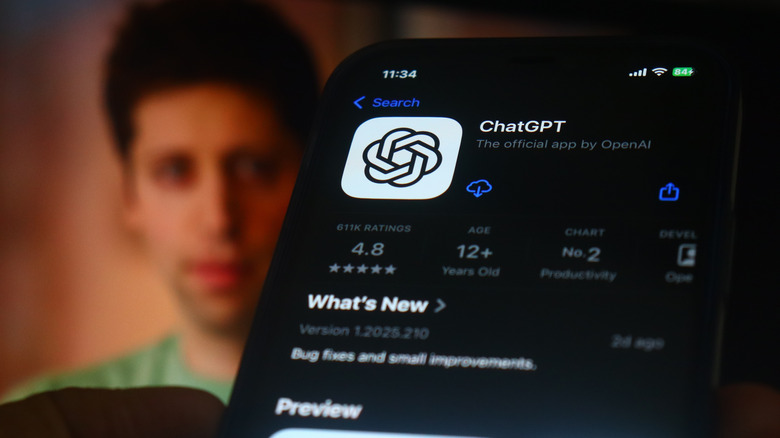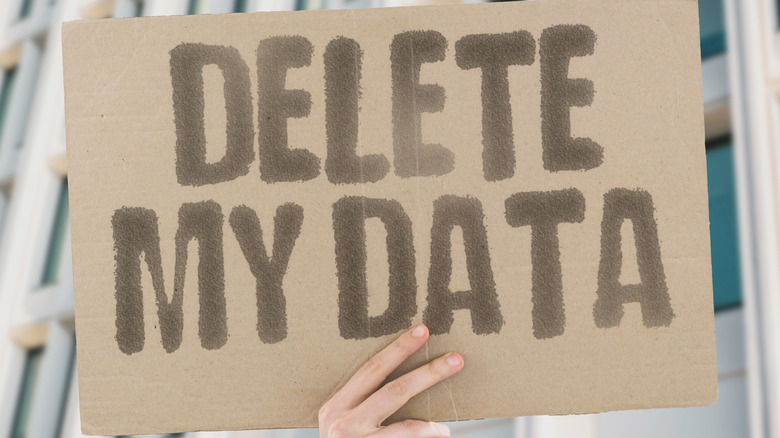ChatGPT Could Add A Major Privacy Feature, Starting With Temporary Chats
From the initial release of GPT-5, the company's latest model, to a big personality change that made GPT-5 warmer, OpenAI has been in the headlines virtually every day lately. Now, it seems like the company is weighing another big addition to ChatGPT, which has become one of the most used AI chatbots on the market right now.
This change, if instated, would make temporary chats with the AI chatbot even more secure by adding encryption. This could go a long way in addressing some of the concerns raised by a recent lawsuit that the New York Times and others have brought against OpenAI. The lawsuit calls for OpenAI to keep records of all ChatGPT logs, including those that have been deleted, so that they can be checked for copyright infringement.
The company already keeps records marked for deletion up to 30 days after you delete them — though you can't recover them — and this change would make for an even bigger privacy nightmare for anyone who uses the AI service. OpenAI has spoken out against the demand and even highlighted how it plans to address user privacy in light of the suit. That said, OpenAI may have a solution, at least in one of ChatGPT's systems, as the company has been toying with the idea of adding encryption to ChatGPT, though notably only to temporary chats at first, according to reports from Axios.
A move in the right direction
The fact that OpenAI has even been considering adding encryption is a win for users. If the company does, in fact, add encrypted chats, it would help alleviate some of the concerns that users have about lawsuits like the one that the New York Times is spearheading right now. As a writer, I'm fully aware of just how important it is to keep companies like OpenAI from blatantly breaking copyright laws. We've also seen some companies pushing the limits of user's requests to not train their models on work that doesn't belong to them. In fact, we recently saw Cloudflare accuse Perplexity of scraping sites that it had been explicitly banned from scraping.
Long story short, this is absolutely a problem that needs to be addressed. But going after the chat records of the users that rely on the service feels like more like a half-measure than actual progress, especially since the primary culprit behind any broken copyright laws is OpenAI — which has been accused of training its models on copyrighted works more than once.
ChatGPT wouldn't be the first AI chatbot to offer encrypted chats, either. Earlier this year, privacy-focused company Proton debuted Lumo, an AI chatbot which features full end-to-end encryption.

